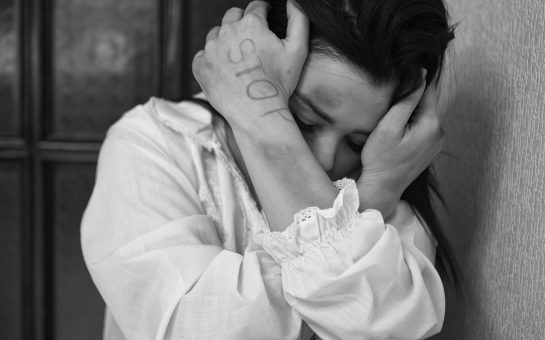There’s nothing quite like the dreaded feeling of returning to work after a well-earned Christmas break.
For those who don’t have a place of work to return to though, the ‘January blues’ can last all-year round, and have an adverse effect on their mental health.
Shocking research conducted by The Prince’s Trust revealed that one in 10 jobless youngsters currently feel too scared to leave the house in the UK, and anxiety has stopped a worrying 30% of those from eating.
One charity working hard to help young people avoid isolation and potential mental health issues is Rathbone, a UK organisation who help young people gain the skills, knowledge and experience they need to secure a job.
However, managing Director, Linda Dean, believes that depression within young unemployed people in Manchester is a growing issue.
“The feedback from the teams working directly with young people at Rathbone Training is that the number of young people with mental health issues has increased,” she told MM.
“We know that the longer young people are unemployed or isolated the more difficult it is for them to them positively engage.
“Many of the unemployed young people I have spoken to and we work with do feel that where they have had repeated rejections previously this has impacted on their confidence.
“They also feel at particular disadvantage as they are young in tough economic times so competition is harder than previously.”
Linda believes that helping young people openly talk about their depression is the key to fighting the problem, along with employers offering work opportunities .
“Continued awareness of mental health issues is needed, so young people can talk about it openly and seek support,” she said.
“In Greater Manchester what would really help with our work would be employers willing to support young people to gain work experience; or offer them an apprentice which would impact in a very tangible way – on the young person, on their families and on the wider Greater Manchester community.”
Another charity committed to improving the emotional wellbeing and mental health of children and young people in the UK is YoungMinds.
Charity spokesman, Christopher Leaman, told MM he believed that the pressures on young people in this country are tougher than ever.
“Young people growing up in Britain are under a constant onslaught of stress and pressure,” he told MM.
“These findings demonstrate that many young people are struggling to cope with the pressures they face to cope with issues such as bleak job prospects, the stress of exams, the pressure to have the perfect body and with the impact that living in a 24-7 online culture has on their lives.
“Until we see a real improvement on the ground, where services are delivered, we will continue to fail some of our most vulnerable young people.”
Christopher believes that unemployment is one of the biggest causes of depression and more needs to be done to combat the issue.
“It is clear that we need to do much more to help people when they start to struggle with their mental health,” he said.
“Young people need quicker and better access to support services that can help when they first notice difficulties.
”Unemployment can have a detrimental effect on your mental health as work can bring a sense of belonging and purpose to people’s lives.”
Over half a million people could be being denied employment due to their inability to demonstrate so-called ‘soft’ skills, such as communication, initiative, interacting with customers and team working.
Restaurant giant McDonald’s have a launched a campaign to promote and raise awareness on the topic, with research suggesting soft skills are worth £88billion to the UK economy.
The firm has launched a three-month consultation and aim to publish a series of recommendations later in the year.
Jez Langhorn, Chief People Officer, McDonald’s UK & Northern Europe, said: “Soft skills like communication and teamwork are incredibly important to our business because of the impact they can have on our customers’ experience.
“As integral as they are to the performance and progression of our employees, I know that we can do more to recognise their importance, which is why we are launching this campaign.
“I want to find ways in which we can better recognise soft skills and I’m calling on others to join us in re-evaluating and improving these skills.”
Whether the campaign will help young people into employment is up for debate though, due to the economic climate and number of job opportunities.
But when it comes to tackling mental health issues caused by joblessness, Greater Manchester is arguably the UK’s leading region.
Police and Crime Commissioner Tony Lloyd, is leading a campaign that has brought together more than 40 agencies and voluntary organisations to deliver initiatives that provide a better service for mental health sufferers.
“The work we are doing and, vitally, the results we are seeing means that the crisis care concordat is not just a piece of paper – it sets in stone our determination to provide a better service to the most vulnerable in our communities,” he said.
“People with mental health issues are getting the right care and support, from the right people, when they need it most.
“Greater Manchester has been hailed nationally for leading the way on this issue.”
Image courtesy of Prince, with thanks.



